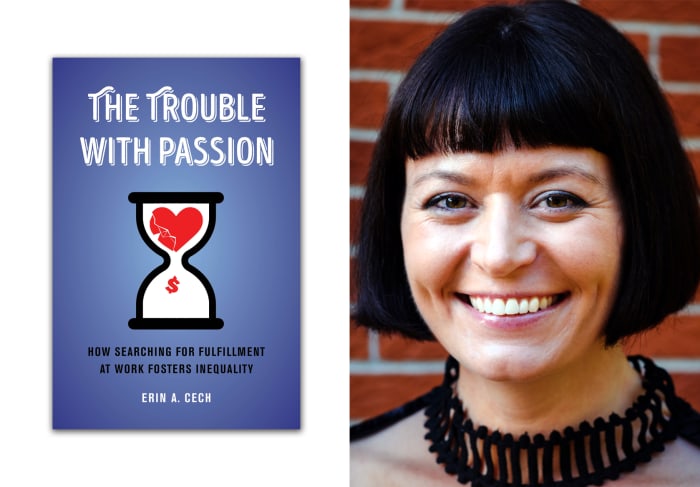This post was originally published on this site
Spurred by a pandemic-induced boldness, millions of white-collar workers are leaving their jobs in search of more meaningful work. This “Great Resignation” is amplifying a decades-long trend of college-educated workers seeking fulfillment in their careers, even at the expense of economic security and job stability.
Seductive as following our passion might seem, passion-seeking can be a risky bet. Drawing on surveys of thousands of workers and nearly 200 interviews, I find that passion-seeking threatens workers’ financial security (especially for those with few safety nets and springboards), facilitates the exploitation of passion-fueled labor, and perpetuates the norm of overwork that fuels burnout. And hitching a core part of our sense of identity to our paid employment is dicey.
How do we avoid these pitfalls of passion-seeking?
1. Do the work of finding meaning outside of work. We must nurture places outside of our jobs in which to anchor our sense of identity. This could include investments in hobbies, family time and self-care, but also community engagement activities like volunteering at a Boys & Girls Club or signing up for an improvisational comedy class.
For professionals who have felt the demands of their job swell over the pandemic, such investment may be challenging. Although some companies like KPMG are ramping up perks to keep workers happy, COVID-induced work from home practices have meant that many professionals work longer hours with more intensity than they did before.
That means even less time and energy for investing in fulfilling non-work activities. I still have to push myself to make time for my budding (and very amateur) painting hobby and for reviving the fiddle-playing that gave me so much joy in high school. This is vital work, however. If we invest all of our meaning-making in our job, and that job disappears, a central piece of our sense of self may go with it.
2. Find ways to shrink the footprint of work in our lives. In defining what is a good job, more than 70% of college-educated workers rank finding meaningful work higher than finding work-life balance. Although many professionals seek fulfillment precisely because they want to avoid the drudgery of working long hours to do tasks they aren’t personally committed to, the passion principle actually perpetuates the cultural expectations for overwork from which passion-seekers are seeking refuge.
Instead of taking overwork as a given, reclaim time and space for your meaningful pursuits outside of work. Prioritize creating a more predictable schedule and soothing the itch to be “always on.” And, for heaven’s sake, don’t contribute to the over 200 million paid vacation days that are forfeited in the U.S. each year because they go unused. Sadly, only about a quarter of all Americans take all the time they are entitled to, and that was before COVID.
Gaining control now over the space that work takes up in our lives is critical as post-pandemic work arrangements start to settle in.

University of California Press
3. Demand the worth of your passion-driven work. Employers often exploit the personal connection workers have to their jobs. My research finds that employers prefer passionate job applicants and employees not just because they might be more enjoyable to work with, but because employers believe they can get more work effort out of them for the same salary.
If you are employed in a job you are passionate about, you need to seriously consider whether you are being fairly compensated for the additional work effort you contribute.
Does your manager know that you spend weekends reading books on team leadership? Have you asked to be compensated for the extra time you spend mentoring new lawyers in your firm or for the science kit you purchased for your fourth-grade classroom to help your students better understand light refraction? We contribute to our own exploitation if we do uncompensated work for our jobs out of passion.
4. Champion collective solutions to the problems of paid work. Searching out meaningful work is ultimately an individualistic solution to labor-force dilemmas; it helps workers personally navigate the constraints of the labor force and avoid the potential drudgery of paid work. But it does nothing to address the factors that make paid work feel like drudgery in the first place.
Demanding collective solutions – fighting for better working conditions, better benefits, and less overwork in our workplaces and in the workforce generally—would not only make paid work more manageable for passion-seekers but also make work better for workers who labor in jobs that hold little potential for the expression of passion.
In short, nurturing places outside of work to anchor a multifaceted sense of identity is not just enriching. It protects our sense of self from the volatile winds of economic change.
Erin Cech is an associate professor of sociology at the University of Michigan and the author of “The Trouble with Passion; How Searching for Fulfillment at Work Fosters Inequality”

